Finance
Internal emails show SEC coordinated climate disclosure rules with AI firm set to financially benefit
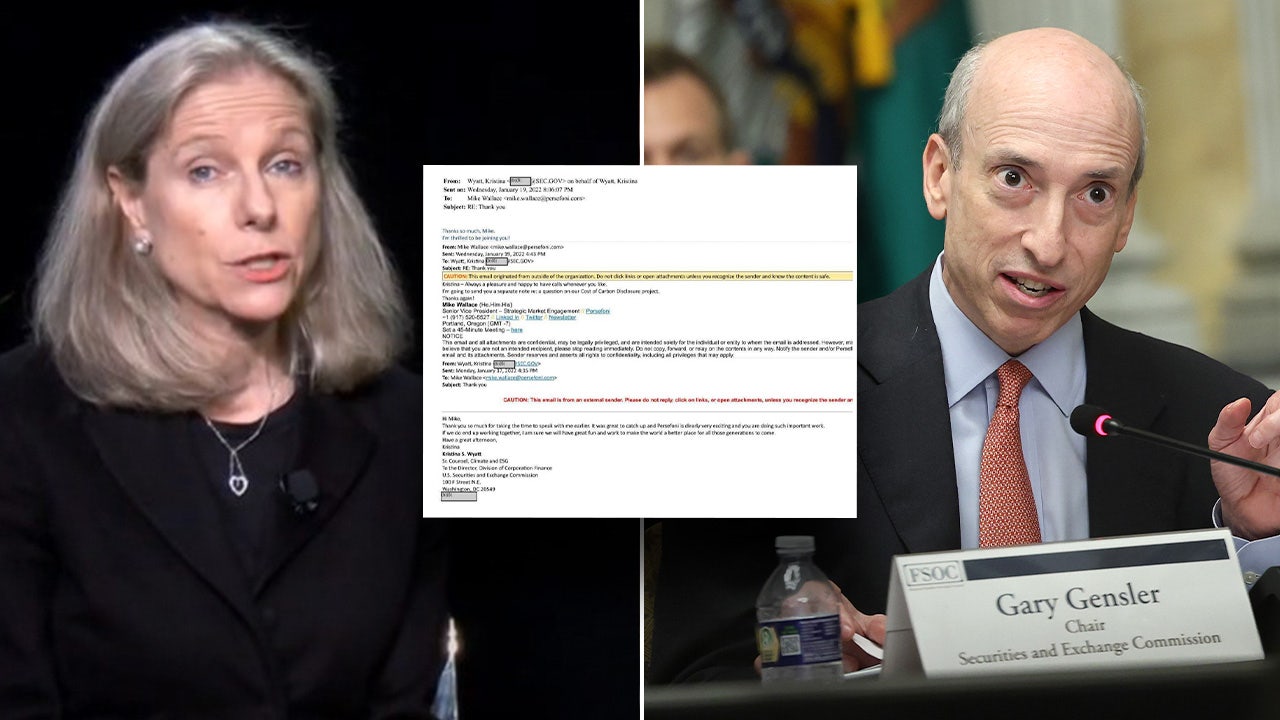
FIRST ON FOX: A former lead counsel at the Securities and Exchange Commission (SEC) coordinated with a private firm to craft pending climate disclosure rules which the firm is set to financially benefit from, according to internal communications obtained by FOX Business.
Kristina Wyatt — the SEC’s former senior counsel for climate and ESG to the director of the Division of Corporation Finance — actively coordinated with Tempe, Arizona-based climate software developer Persefoni while helping develop the disclosure regulations, which were ultimately unveiled in March 2022. After coordinating with Persefoni on the rules, Wyatt departed the SEC and joined Persefoni as a top executive where she counsels clients on “evolving ESG disclosure requirements.”
“She’s working for a company that, when this rule is finalized, is ostensibly going to have an absolute gold rush of clientele and basically a captive audience,” said Will Hild, the executive director of Consumers’ Research, an advocacy group that analyzed the internal SEC emails revealing how the pending disclosure rules were developed behind the scenes.
“All of a sudden, all of corporate America, every publicly-listed company, is suddenly going to need this software in order to stay in compliance with SEC,” Hild told FOX Business in an interview. “So, she helped write the rule that created the demand for the product at the company that she left to go work at.”
BIDEN’S SEC CHAIRMAN HAS SEEN HIS NET WORTH SKYROCKET IN RECENT YEARS AMID GOVERNMENT SERVICE
The emails and attachments were obtained in litigation by Energy Policy Advocates, a federal watchdog group that has filed a dozen FOIA lawsuits to obtain information from the SEC. Consumers’ Research then compiled and analyzed the emails.
Persefoni is an artifical intelligence startup founded in 2020 whose main product is the so-called Climate Management & Accounting Platform (CMAP), which enables businesses, financial institutions and government agencies the “software fabric” for managing their climate-related data, disclosures and performance.
In March 2022, the SEC, the nation’s lead financial regulator, proposed the climate disclosure rules requiring publicly-listed companies to share climate-related information including their own direct and indirect carbon emissions, requirements that Republicans said would create substantial new costs. SEC Chairman Gary Gensler, who President Biden appointed in 2021, recently said his agency is expected to finalize the rules in the coming weeks.
TOP REPUBLICANS DOUBLE DOWN ON EFFORTS TO REIN IN SEC GENSLER’S CLIMATE PROPOSAL
“The SEC has no role as to climate risk itself. We, however, do have an important role in helping to ensure that public companies make full, fair, and truthful disclosure about the material risks they face,” Gensler said during a House Financial Services Committee hearing in September.
“Thus, in fulfilling the Commission’s important role, we put out for comment a proposal about climate-related disclosure to bring consistency and comparability to such disclosures.”
He added the SEC remains “merit neutral” and that investors ultimately decide what investments they make and risks they take “based upon those disclosures.”
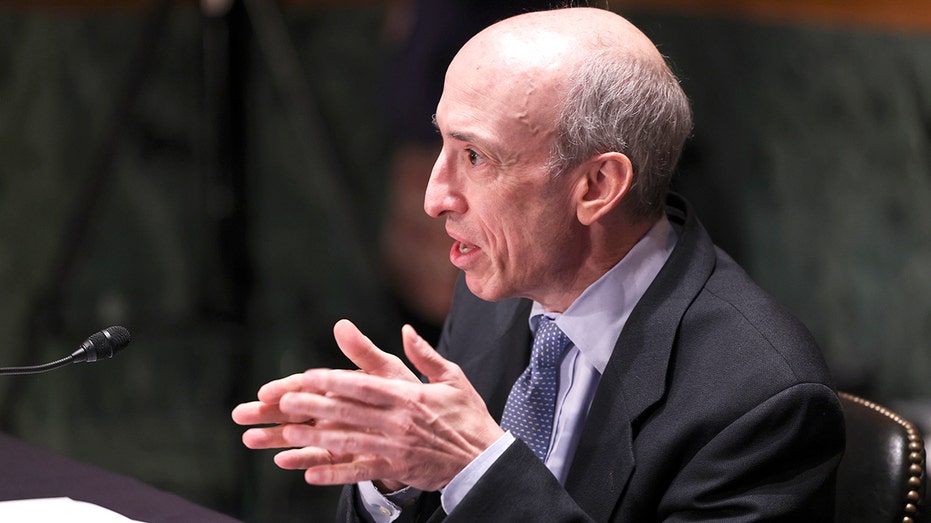
As a result of the proposal and eventual finalized rule, Persefoni stands to gain a significant number of new CMAP clients who will, under the new disclosure requirements, need a software to track wide-ranging climate data. In August, the Arizona company announced it had received $50 million in seed funding, and the company has a posted number of resources on its website about how companies can begin preparing for the SEC rules.
However, according to the emails and information reviewed by FOX Business, Persefoni first contacted Wyatt, the former lead SEC counsel, in September 2021 to engage about the agency’s formulation of the disclosure rules. In the weeks following, Persefoni then met with SEC staff, including Mika Morse, Gensler’s policy counsel, to discuss data for informing the cost of preparation of green house gas emissions reports.
BLACKROCK TURNED DOWN RECORD NUMBER OF CLIMATE PROPOSALS AMID INFLATION, ESG PUSHBACK
Wyatt continued to engage with Persefoni and, at one point in October 2021, told the company’s senior vice president Mike Wallace that she had told other officials in the federal government about its platform.
“I mentioned Persefoni to some others in the government working on a project that relates to the costs of reporting and heard back that you’re meeting with the [Environmental Protection Agency] next week,” Wyatt told Wallace in the Oct. 2, 2021, email. “That’s good.”
Wallace responded that the virtual meeting went well and that, in addition to the EPA, officials from the Department of Defense, White House Office of Management and Budget, and General Services Administration also participated. He noted he had also engaged with the White House Council on Environmental Quality.
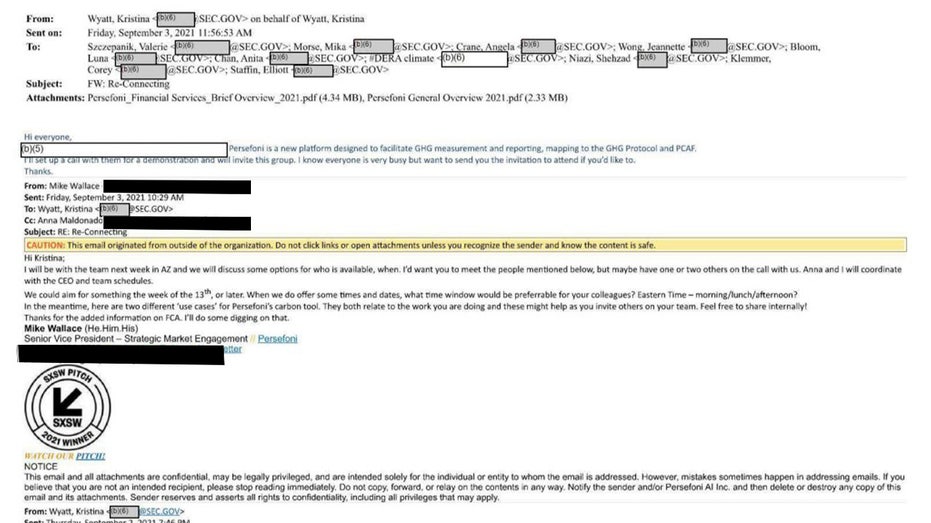
Additional emails involving Yogin Kothari, a lobbyist at the firm Boundary Stone Partners which represents Persefoni, further referenced an October 2021 meeting between the SEC and Persefoni, where the “concept of the [cost] study” was discussed. Further communications reveal two more meetings, both in November 2021, between the SEC and Persefoni.
21 STATES THREATEN BANKS WITH LEGAL ACTION OVER WOKE POLICIES: ‘STAY IN YOUR LANE’
“During the meeting, the representatives from Persefoni presented estimated ranges of costs based on their experience working with corporations that voluntarily initiate a GHG emissions disclosure program,” Morse, Gensler’s policy counsel who attended the meetings, wrote in an internal memo following a Nov. 30, 2021, meeting with Persefoni.
“They also provided an analysis of which S&P 500 companies that make climate-related disclosures and set GHG emissions reduction targets,” Morse added. “The Persefoni team followed up the meeting by sending an email answering several questions that the SEC staff asked during the call.”
Then, the emails showed, Wyatt emailed Wallace, the Persefoni executive she had been in contact with, in January 2022 thanking him for taking the time to speak with her earlier, adding that “Persefoni is clearly very exciting” and that the company is doing “such important work.”
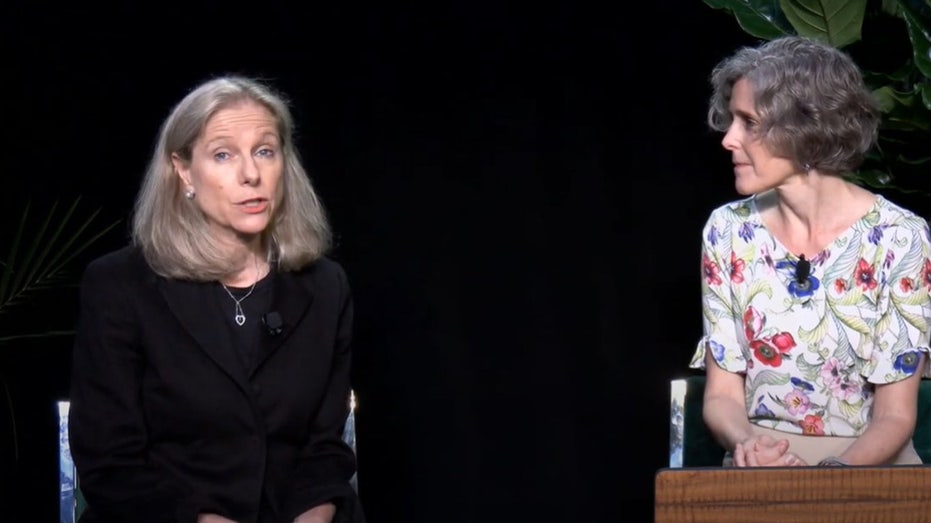
“If we do end up working together I am sure we will have great fun and work to make the world a better place for all those generations to come,” she wrote to Wallace, an apparent reference to joining Persefoni.
After Wallace responded that the calls were “always a pleasure,” Wyatt said in a follow-up email that she was “thrilled to be joining you!”
Five days after the email exchange, on Jan. 24, 2022, Wyatt filled out an SEC employee exit form and departed the agency. The form listed her destination as “unknown.”
CONSUMER GROUP LAUNCHES CAMPAIGN TARGETING ENERGY COMPANY PUSHING ESG MEASURES
On March 7, 2022, just weeks before the SEC issued the climate disclosure rule proposal, Persefoni announced Wyatt had been hired as the company’s deputy general counsel and senior vice president of global regulatory climate disclosure. The company said she would be responsible for helping ensure “that companies and their investors have the proper tools to measure, manage and report on their carbon emissions.”
“The sustainability challenges that the world faces are complex and daunting, and data is the single most critical aspect in addressing the climate crisis,” Wyatt said in a statement at the time. “Persefoni is addressing the single greatest impediment to progress in minimizing climate change, and offers the best technology that puts reliable, actionable data in companies’, investors’ and governments’ hands to help them on their ESG journey and commitments.”
“I am thrilled to join Persefoni’s industry-leading team and continue to forge meaningful change in helping organizations across the globe seek their carbon truth, identify new ways to operate and overall reduce their impact on the environment,” she continued.
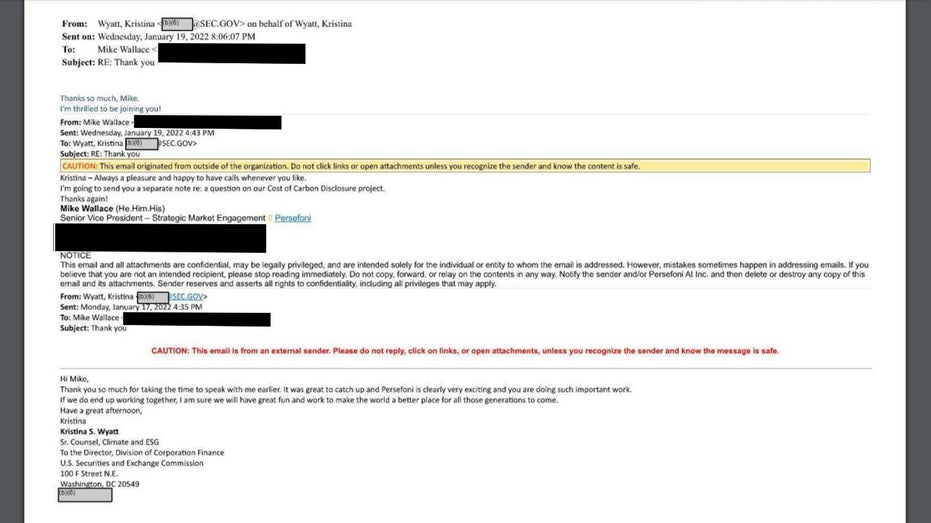
Earlier this year, Persefoni announced Wyatt had been promoted to be the company’s chief sustainability officer.
“The SEC seeks input from a wide array of market participants on all its rulemakings,” an SEC spokesperson told FOX Business. “As it relates to the climate disclosure rule, the Commission placed all the sources it used in proposing the rule in the proposing release and asked for public comment.”
“That transparency and opportunity for public comment is how rulemaking is supposed to work,” they continued. “Indeed, the Commission received more than 16,000 comments on the benefits and costs of all aspects of the proposal. Any final rule would also cite information and the sources for information on which the Commission relied.”
The spokesperson added that when SEC employees depart the agency, they “join law firms, trade associations, nonprofits, academic institutions, other parts of the government, or any number of places.”
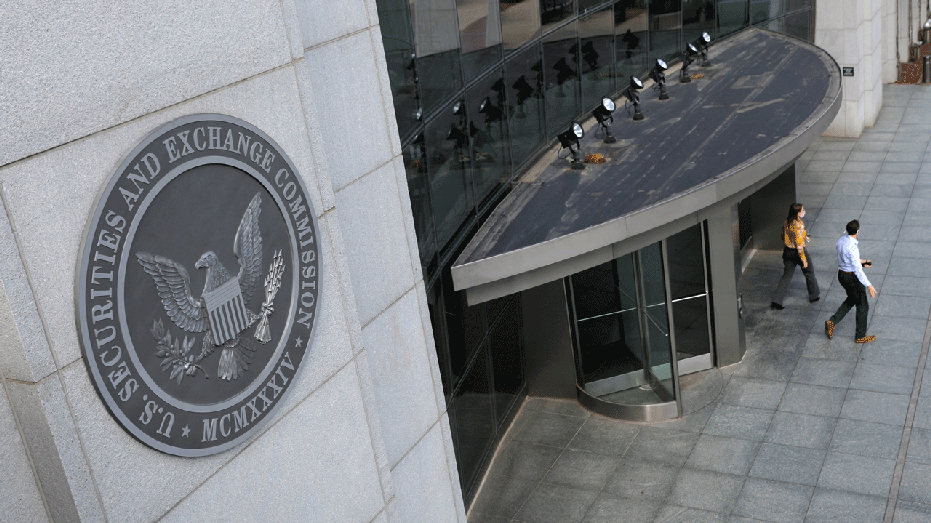
After analyzing the information on Persefoni’s involvement in crafting the SEC disclosure rules, Consumers’ Research assembled a report, which it shared with the House Financial Services Committee. Hild penned a letter Thursday to the committee’s Chairman Patrick McHenry, R-N.C., saying he hoped the report would “aid your committee in investigating the unethical and perhaps illegal interaction between SEC officials and private businesses that helped justify, promote, and implement a radical climate agenda.”
REPUBLICAN STATES TAKE DRASTIC MEASURE IN LATEST SALVO AGAINST ESG MOVEMENT
“Simply put, Persefoni has a direct conflict of interest in its advocacy. The company will bear no additional operating costs if the proposed SEC climate disclosure rule goes into effect, but instead stands to reap a massive windfall, as the demand for their sole product (carbon accounting) skyrockets because of the new rule,” Hild wrote to McHenry in the letter obtained by FOX Business.
“This report highlights troubling potential ethics violations of SEC employees, like former SEC Counsel on Climate and ESG Kristina Wyatt, who worked directly with Persefoni during this rulemaking process and then left the Commission to join Persefoni, a move that emails show was fully expected before her departure from the SEC,” he continued.
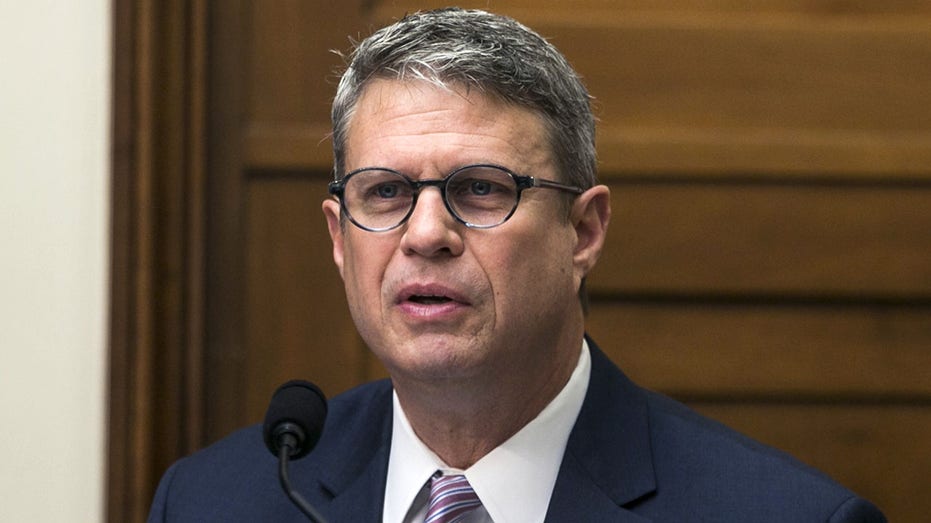
In a statement, Rep. Bill Huizenga, R-Mich., who chairs the Financial Services Committee’s oversight and investigations subcommittee, said the information Consumers’ Research obtained would accelerate his panel’s oversight of the SEC’s disclosure rule.
“The Consumers’ Research report seems to confirm the fears of those facing the impact of the climate rule — that it was crafted without meaningful input from industry, much less average Americans,” Huizenga, R-Mich., told FOX Business.
“It is clear the SEC does not have adequate economic data to support its work, and is heavily relying on a small, hand-picked group to justify its proposed climate rule,” Huizenga continued. “We have been investigating the agency’s climate rule since the beginning of this Congress and this report highlights how important it is that the SEC cooperate with our ongoing investigation.”
Persefoni declined to comment.
Read the full article here


















